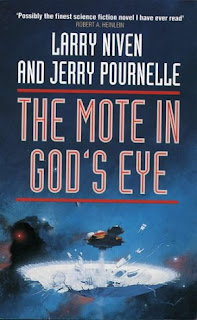Often the adversaries are mismatched in any of a number of ways. For instance, imagine a basketball team of short, suburban girls who go up against another team of tall, inner-city girls. Malcolm Gladwell described how the short, suburban girls managed to win using a zone defense devised by a soccer coach.
Gladwell goes on to describe how Davids can beat Goliaths without divine intervention.
In World War II, the Japanese had the best fighter aircraft flying. This is despite the fact that Americans freaking invented aviation. The American pilots soon learned that you never get into a turning fight with Zero. American planes were faster, more powerful, and better armored. We could take more punishment, but they could dish it out better. In many cases, the only smart move was to lay on that power and flee.
American aviation learned the strengths and weaknesses of Japanese planes and matched them against the different strengths and weaknesses of American planes. With that knowledge, American strategies were formulated to avoid situations where Japanese strengths hit American weaknesses, and sought out situations where Japanese weaknesses were matched against American strengths.
Most conflicts are asymmetrical, but we don't like to think of them that way. If heavily armed French knights come out to battle, they don't like to go against lightly armed English archers. Red jacketed imperial British infantry don't do as well against Yanks with Kentucky long rifles skulking about forests.
Vietnam and the "War on Terror" (a stupid term) are asymmetric conflicts with large organized armies going up against dispersed insurgencies. Whereas in Basketball everyone follows the same rules, the antagonists in these wars follow different rules.
Then there are wars of words.
It is infuriating when the other side doesn't follow the same rules you do. It feels like they're cheating, but they're just playing their strengths against your weaknesses.
Consider the situation where you've just made a very subtle point about something interesting. Let's say that you can appreciate what the Federation scientist, John Gill, was doing in the Star Trek episode "Patterns of Force." You agree that his intention was good and you may think that he was following the most efficient system of government ever devised.
"Hold it. That's the episode with Kirk wearing a Nazi uniform."
 "Yeah, Hugo Boss could really design a sharp-looking uniform, couldn't he?"
"Yeah, Hugo Boss could really design a sharp-looking uniform, couldn't he?""You're advocating Nazism! You want to murder Jews!"
"I did not say that."
"You antisemite, racist jerk!"
"I never said anything like that."
"Nazi!"
The exchange is rather silly, but it illustrates a point. I like to explore the boundary between truth and falsehood. What are the distinctions that make one form of collectivism acceptable versus unacceptable? Suppose a large man is quarreling with his girlfriend and he punches her out? Is he a mere thug to be expelled from society? Or might he have been incited to violence?
Any attempt to talk about this in an even-handed fashion runs the risk of offending the "deliberately obtuse." In my little Nazi exchange, I identify with the accused, not because I'm a Nazi sympathizer, but because when this has happened to me, I've made a terrible rhetorical mistake.
I've assumed the person making the accusation is ignorant or stupid. This is because it is kinder to think this than to think that the person is evil. Evil? It is evil to twist the meaning of another's words into something ugly and unrecognizable. And to do so knowingly.
Some people feed off outrage, and use bogus accusations to make themselves larger and to hurt their perceived enemies. In a world where everyone is busy, it's easy to ignore the nuanced argument, and just glom onto falsehoods: Steve admits he's a Nazi sympathizer. He said it himself, "I'm a Nazi sympathizer."
.png) Therefore, when you say something and another person takes it the way you did not intent, ask if that person is being deliberately obtuse.
Therefore, when you say something and another person takes it the way you did not intent, ask if that person is being deliberately obtuse.I think that reason and truth are useful rhetorical tools to increase my store of knowledge. I hold an old-fashioned notion that if we know more, we'll act better, and by understanding each other we'll get along better.
However, Mao said that truth flows from the barrel of a gun. Post-modernists do not believe in truth and regard language as a mere power game. Logic is just a tool of the patriarchy to oppress the downtrodden. And all that.
You might think this is bad, but it is a mere asymmetrical conflict between what Ancient Greeks would call realists and sophists. Don't get mad. Recognize they're playing by different rules--rules where a grammatico-historical hermeneutic of your words are irrelevant to how those words can be spun.
If you are dealing with a sophist, do not expect honesty--expect a power game. If you detect your interlocutor is deliberately misconstruing your point, here is my permission to call them an ignoramus.
My sainted philosophy teacher once told me that sometimes the only rational response to modern art is ridicule.
Same goes for sophists.














